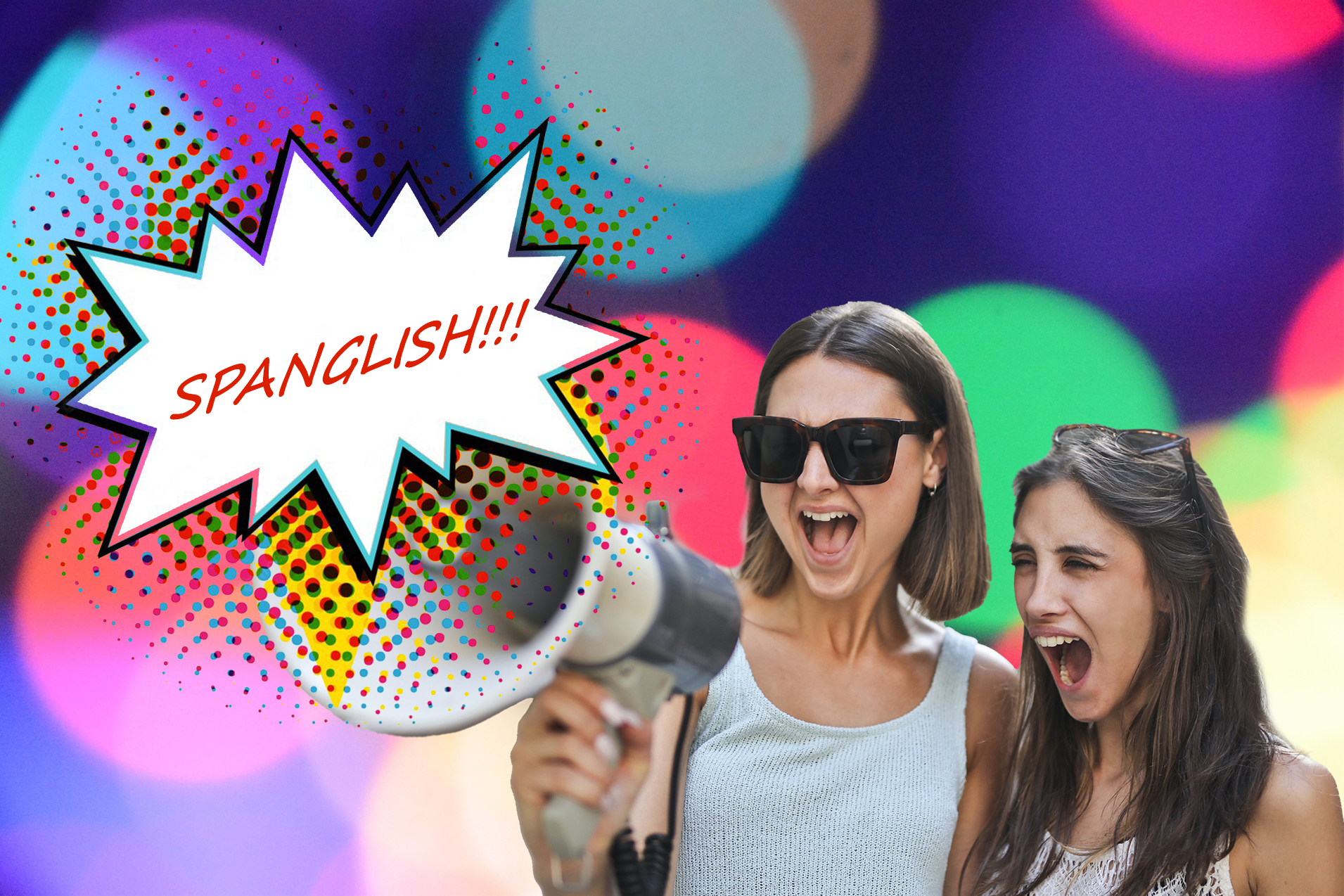Spanglish. Que cosa is it?
Simply put: it’s just a mashup of English and Spanish. Others may define it by going even further and referencing Director James L. Brooks’ romantic comedy “Spanglish” from the mid “aughts,” featuring Adam Sandler opposite Paz Vega, where little to none was spoken (it reportedly fell on the work of a translator behind the camera to connect the dots). How archaic does that sound in 2023!
Yes, it’s true, Spanglish is more than just your regular old portmanteau. It’s this hardly-neat, beautiful amalgamation of English in Spanish in conversation. Its dynamic use of two separate languages to make a third.
And according to a recent poll in Axios Latino, a younger generation of Latinos are embracing this third language more than their parents and grandparents.
While only 5% of Boomers (people born between 1946 and 1964) report to be most comfortable speaking Spanglish, 10% of Gen X (born between 1965 and 1980), 14% of Millenials (born between 1981 – 1996), and 20% of Gen Z (born late 1990s to early 2010s) report being most comfortable speaking in Spanglish, suggesting the language is only here to grow.
Actually, some experts believe the rise of Spanglish’s popularity is largely in part of artists like Karol G, Bad Bunny, Shakira, and Peso Pluma who are using both Spanish and English in their mainstream songs.
Think of the lyrics in a Karol G song: “No se nada de ti, pero ya estoy free.”
As it does in music, one could argue Spanglish lubricates everyday conversation as well. It’s helpful for those who know words in two languages. For example, let’s say you know a few words and key phrases in Spanish, just enough to get you by. By no means are you fully bilingual or even necessarily fully proficient in Spanish. Hello, Spanglish!
Or there’s the reverse: you are standing in front of someone who speaks Spanish mostly and dabbles in English. ¡Hola, Spanglish!
Instead of forgoing having any conversation at all (or giving into letting them speak into your Google translator to solve it), you put what little shared words you have together, and use each other’s dominant language as the vehicle. And things get done.
Spanglish in the mainstream is nothing new. Just look back at “Que Pasa USA,” a 1970’s PBS sitcom feel-good truly bilingual (entire dialogue delivered in only English, only Spanish, and/or a Spanglish combination of the two) sitcom.
And, yes, I know what you were thinking: What does ChatGPT have to say about Spanglish? (Since AI seems to know everything these days, verdad?) Not surprisingly, AI likes Spanglish, and speaks it.
When asked, ChatGPT responded to a “do you speak Spanglish?” instantaneously with a “¡Sí! I can understand and respond in Spanglish. ¡Hablo Spanglish sin problems!”
Looks like Spanglish may be here to stay, pero nunca se sabe.





